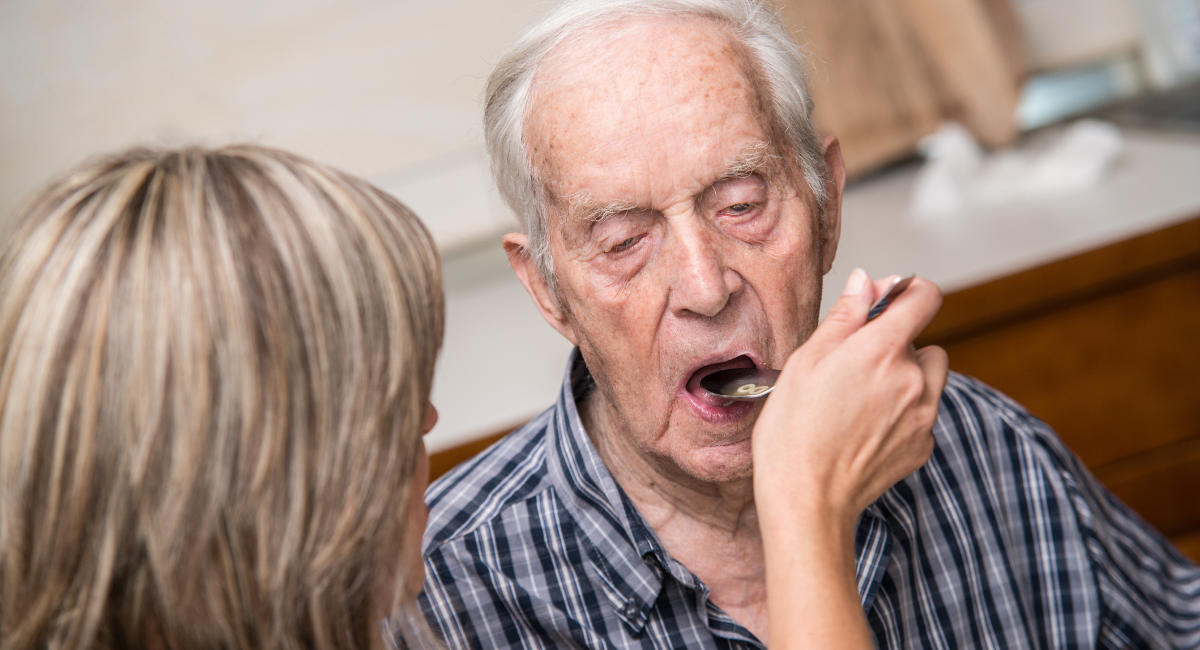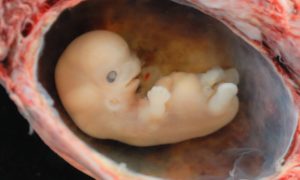A well-known bioethicist has come out in favor of forcing caregivers to starve persons with dementia to death by withholding spoon-feeding and liquids from them. He claimed in a recent article that feeding and hydrating people is “medical” and therefore an intervention that can be withdrawn.
Key Takeaways:
- Bioethicist Arthur Caplan claimed that food and drink are medical interventions.
- Caplan believes that food and drink can be withdrawn from a person with Alzheimer’s if they have an advance directive stating they do not want medical intervention.
- He believes it is ethical to force caretakers to refuse to feed Alzheimer’s patients.
The Details:
In a video for Medscape, Arthur Caplan, from the division of medical ethics for New York University’s Grossman School of Medicine, advocates for withdrawing food and liquid from patients with dementia.
Starvation is a cruel act that can take days and even weeks to lead to a person’s death, as was the case with Terri Schindler Schiavo, who died 20 years ago after her husband fought to have her feeding tube removed. She was forcibly starved and dehydrated for an agonizing 13 days before she died.
In the article, Caplan shows support for the inhuman treatment Schiavo received, claiming “there is a right… to not force artificial feeding (meaning by tube, in the nose, or in the stomach) or artificial hydration upon someone who doesn’t want it.” There was no proof that Schiavo didn’t want this nutritional support.
However, Caplan goes further, advocating for removing food and drink from people with dementia, even if their caretakers do not want to do so, because he considers food and drink to be “medical” interventions based on one arbitrary factor: who is holding the spoon.
He wrote, “A woman, let’s call her Mary Taylor, some years ago knew that she was at risk of getting Alzheimer’s disease. She filled out her living will and discussed with her family that when she became demented, if she was unable to care for herself, if she couldn’t recognize her family and friends, she did not want any medical interventions, including specifically hydration and nutrition.”
When “Mary Taylor” was eventually placed in a nursing home, her doctor noticed that when nurses offered her food and drink on a spoon, Mary was opening her mouth and eating and drinking. However, the doctor and the family remembered the advance directive and told staff to stop spoon-feeding her.
“The nurses did not want to [stop],” he said. “They said it’s ordinary care. It’s not medical. It’s just what you do as part of what one human being deserves from another human being — to offer them ordinary ways to drink water or to eat something.”
But Caplan asked, “Is feeding by spoon the same as medical intervention with artificial forms of hydration and nutrition?”
He believes it is.
“I believe that when you say ‘no more food and nutrition,’ it isn’t just the equipment. I’ll put it simply: It’s who’s on the end of the spoon. If nurses or doctors are feeding, it’s medical. It’s professional care, and you should be able to say no to that.”
The Context:
Caplan is no stranger to controversial, discriminatory statements regarding people with intellectual differences. In a 2016 letter to the U.S. Department of Health and Human Services’ Office for Civil Rights regarding organ transplantation, he said, “If the potential recipient is severely intellectually impaired… I do not think it makes sense to consider that child for a transplant.”
In addition, Caplan “has argued that EMTALA requires hospitals to commit abortions, has called for Catholic hospitals to be defunded while Planned Parenthood receives taxpayer dollars,” as previously reported by Live Action News.
Why it Matters:
Wesley J. Smith responded to Caplan’s remarks:
Spoon-feeding isn’t a medical procedure. It doesn’t take a medical professional’s education or training to do it.
Food and liquids aren’t medicine. We are talking about canned peaches, cottage cheese, soup, or eggs. We are talking about water, juice, tea, and coffee.
Good grief, I spoon-fed my mother when she was dying of Alzheimer’s, and it didn’t take any special skill or training on my part. Should I have been charged with practicing medicine or nursing without a license?
Caplan continued to argue that when the person was competent, she made her desires known and ‘knew where she was headed.’ By his way of thinking, a person who “loses competency” no longer has the right or ability to change their minds about a previous decision.
Smith wrote:
Wouldn’t this dehumanize the now-incompetent person by making him or her less than equal? And wouldn’t this be a real ‘gotcha,’ because once a person became incompetent, then even in nonmedical cases — many dementia patients really enjoy eating; Mom sure did — their desires and joys would matter not a whit?
It’s a terrifying thought that signing an advance directive saying you don’t want “medical interventions” to be carried out would mean you could be denied basic nutrition and be starved to death. And as you suffer through that you likely don’t understand why this is happening to you.
In addition, as Smith points out, “Aren’t there some actions that we don’t have a right to demand of others?”
The Bottom Line:
The pro-death culture wants doctors to be forced to abort babies, claiming that not committing abortions is a denial of women’s rights to health care. Now it demands that caretakers refuse to feed a patient who willingly eats and could even be asking for food and drink.
Follow Live Action News on Facebook and Instagram for more pro-life news.







